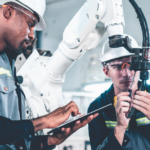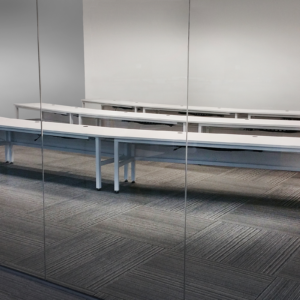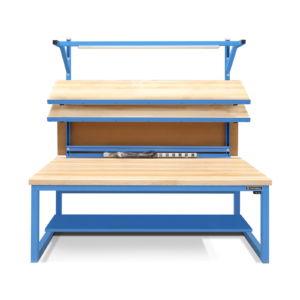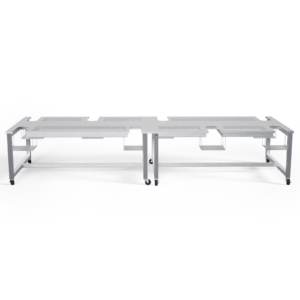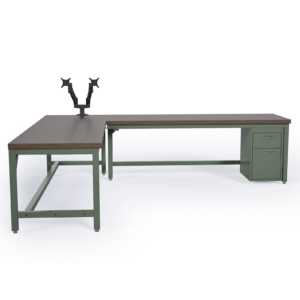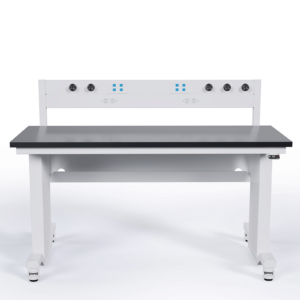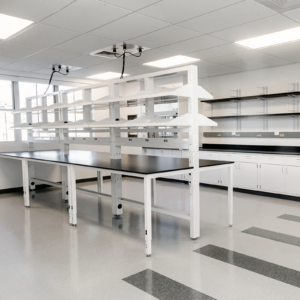For years now, Airbus has competed fiercely with Boeing for bragging rights on who is the world’s biggest manufacturer of passenger jets.
The competition between these aerospace giants used to be fairly clear cut: Boeing was the sole US manufacturer of passenger aircraft, a title it held since 1997 when it bought out its domestic competitor, McDonnell Douglas, the manufacturer of MD-95 and MD-11 passenger aircraft. Airbus, on the other hand, ruled the world of European aircraft manufacturing, with final assembly lines (FAL) in Toulouse, France and Hamburg, Germany.
But that clear cut distinction of who was American and who was European fell by the wayside this past month with the successful flight test of an Airbus A320 passenger jet built at Airbus’s new final assembly production line in Mobile, Alabama.
Boeing and Airbus are now competing head-to-head as manufacturers on US soil.
The successful flight test of an Airbus A320 passenger jet coming off the final assembly production line this month in Mobile, Alabama, marks a major milestone in the history of commercial jet production in the USA.
How Airbus Came to Build the Final Assembly Production Line in Mobile, Alabama
The story of how Airbus Group came to build a final assembly production line in Mobile, Alabama has many twists and turns, making it one of the most interesting stories of aerospace competition in a long time.
The story starts back in the mid-2000s when the US Department of Defense issued a request for a proposal to replace its aging fleet of aerial tankers that refuel the nation’s armed forces aircraft in flight.
Most industry observers assumed that Boeing, having acquired McDonnell Douglas, would be the default winner of the bid to win the contract, dubbed the Air Force KC-X aerial refueling tanker competition.
So it came as a great surprise that Airbus Group (then known as EADS North America) decided to bid as well. And Airbus was serious, too. They created a partnership with leading defense contractor Northrup-Grumman to bid on the new tankers, based on the wide-body Airbus A330s twin-engine jets.
Aware that Airbus’s status as a European manufacturer would make it highly unlikely it would be awarded the contract, Airbus and Northrup-Grumman proposed to construct a brand-new assembly plant in Mobile, Alabama. This way they would qualify as a Made-in-America bidder.
Airbus and Northrup-Grumman Achieve a Surprise Upset and Win the Air Force KC-X Aerial Refueling Tanker Competition
As surprising as it was for the European aerospace giant to bid on a critical US Department of Defense contract, it was even more surprising when Airbus and Northrup-Grumman won the contract in 2008.
Boeing, however, did not accept the decision lying down. Boeing representatives quickly appealed the decision, saying the contract letting process was flawed.
The Department of Defense relented and cancelled the award to Airbus and Northrup-Grumman. The contract was put out for bid a second time.
This time Northrup-Grumman dropped out of the competition, leaving Airbus to bid against Boeing alone.
After reviewing the second round of bids, the Air Force made its decision. It selected Boeing’s bid for tankers, which were based on a modified version of Boeing’s recently retired 767 aircraft.
After a Second-round Loss to Boeing, Airbus Surprised the Aerospace Industry By Sticking with Mobile, Alabama
Most industry observers and many government officials assumed that Airbus’s interest in Mobile, Alabama would fade away once Boeing got the tanker contract.
Mobile and Alabama government officials however kept at it — promoting the idea of “Project Hope” — an initiative to bring high-quality aerospace jobs to the Gulf Coast.
But many thought this was a valiant but ultimately futile effort. After all, without a tanker contract in hand, why would Airbus see the need to build a production line in Mobile?
The answer is that Airbus had both strategic and tactical reasons for investing in a US manufacturing facility.
The first reason is strategic. An American manufacturing presence gives Airbus a greater chance to win future American Department of Defense contracts.
The second reason is tactical; with surging sales of the Airbus A320 family of passenger aircraft, Airbus needs more manufacturing capacity.
This is particularly true since Airbus shook up the Airbus-Boeing duopoly in narrow-body aircraft by introducing the A320 NEO, or New Engine Option. Sales of A320 NEO aircraft have really taken off, because their updated power plants offer significantly higher fuel efficiency for the airlines.
Thanks to a flood of new A320 NEO orders, Airbus’s final assembly production lines in Toulouse, France and Hamburg, Germany have been working at near capacity.
This helped convince Airbus to go forward with the US plant in Mobile, Alabama, as well as an A320 production line in Tianjin, China.
In July 2012, Airbus CEO Fabrice Brégier committed the company to build the $600M final production line in Mobile.
Located at the Brookley Aeroplex, the new factory will build all three models of the A320 family, including the A 319 and the A321. As production ramps up to full capacity, Airbus indicates it assembles up to four aircraft per month and has as many as 1,000 full-time workers.
Will Skilled Manufacturing Worker Shortages Affect Airbus Productivity at the New Mobile, Alabama Final Assembly Line?

Commercial passenger jet manufacturing requires a highly skilled, trained labor force as well as a sophisticated supply chain infrastructure to support the production line.
Certainly there were questions raised about the available workforce in Alabama. How could they attract and train the workers in a region that historically didn’t have a large scale aerospace industry base?
Concerns about this issue began to fade in light of the success of Boeing’s new North Charleston, South Carolina final assembly plant. Dubbed the Boeing South Carolina Delivery Center, this new assembly line builds the carbon-fiber Boeing 787.
Like the Airbus plant in Mobile, Boeing’s North Charleston faced a lot of criticism and predictions that they wouldn’t be able to produce aircraft on time. Boeing machinist employees in the Pacific Northwest were particularly critical of the new plant, which many of them felt was a direct threat to their jobs. But once the nearly 6000 ft.² Boeing South Carolina Delivery Center opened in late 2011, it has successfully assembled and delivered about one 787 per month.
As a vote of Boeing’s confidence, the North Charleston plant was selected to be the sole producer of the largest Dreamliner model, the 787-10 stretch version.
Will the US Southeast Reach Critical Mass as a Commercial Aerospace Manufacturing Hub?
While Airbus and Boeing have been getting the most attention lately, the Southeast already had a well-established passenger aircraft manufacturer – Gulfstream Aerospace Corporation, located just over 100 miles southwest of Boeing in Savannah, Georgia. Gulfstream designs and builds their high-performance G600 and G650 jets in Savannah. And, as it turns out, Gulfstream happens to be the former civilian aircraft division of Grumman — Airbus’s one time partner on Air Force KC-X aerial refueling tanker competition.
Taken together, Boeing, Airbus and Gulfstream form the basis of a growing commercial aerospace industry network in the Southeast.
It’s not a flash in the pan either. There is a multi-year wait to take delivery on a new Boeing 787 or Airbus A320 NEO. In fact, Airbus COO John Leahy was quoted at the ISTAT industry conference in Phoenix in February that his biggest fear was not being able to produce enough planes to meet the demand.
With production planned out for many years into the future, it’s anticipated that more and more of the supply-chain will also locate to this region to get closer to the customers.
That makes it a good bet that we’ll see the US Southeast region continue to grow as one of the world’s newest aerospace manufacturing hubs.
Congratulations to Airbus on the Successful Flight of the First US-made A320 from the Mobile Production Line
At Formaspace, we believe in the power of American manufacturing. All our heavy-duty industrial furniture is made right here at our factory headquarters in Austin, Texas.
No matter what industry, Formaspace has the expertise and skills to deliver the right furniture you need for your manufacturing facility, government or military installation, educational institution, research, healthcare or laboratory science facility.
Give us a call today at 800-251-1505 and speak with a knowledgeable design consultant. They can show you how we can make your current installation more efficient with our American-made line of computer workstations, laboratory furniture and more. We can also help you plan for renovating or building new facilities. Give us a call today.



